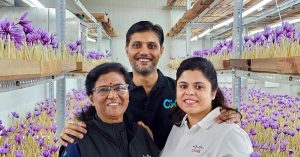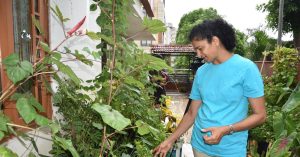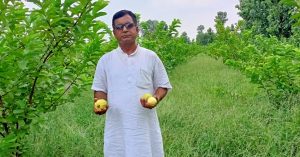Pune Woman Grows Fruits, Veggies & Sugarcane in Terrace Garden, Without Any Soil
Neela Panchpor is a home gardener who grows several varieties of plants using dry leaves and kitchen waste.
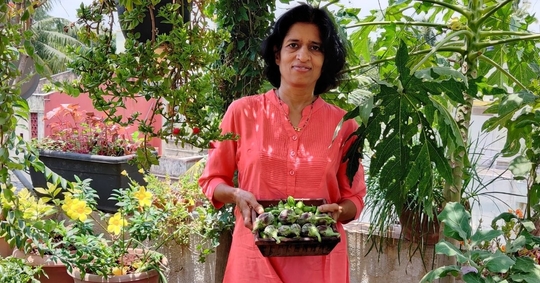
Neela Renavikar Panchpor is a Pune-based cost accountant, a professional marathon runner, and a home gardener who grows several varieties of flowering plants, vegetables, fruits, and different varieties of herbs in a 450 square feet terrace garden.
What’s interesting is that she does not use soil or any kind of potting mix to grow her plants. Instead, she uses the compost that she prepares at home, which is a mix of dry leaves, kitchen waste and cow dung.
“A soilless potting mix with dry leaves has higher water retention and better air circulation. Adding kitchen waste and cow dung manure provides nutrition to the growing plant and promotes the growth of earthworms,” says Neela, adding that there are no special techniques involved with soilless farming. All one needs is patience and dedication.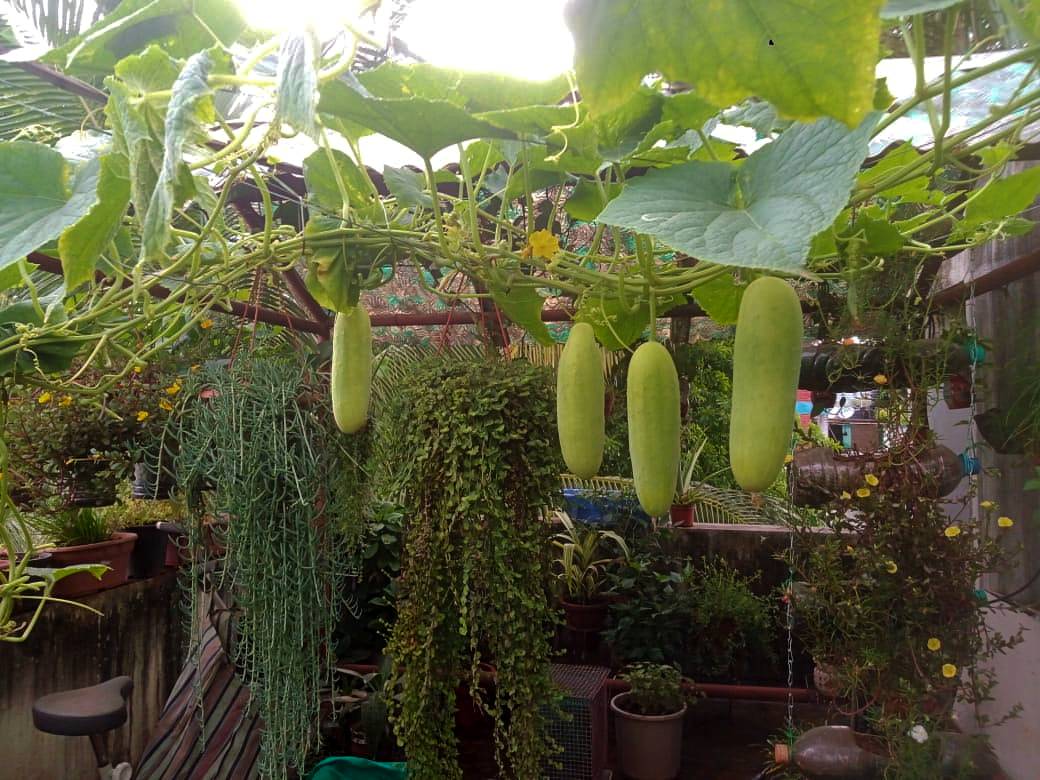
Growing Plants Using Kitchen Waste
Neela’s journey to soilless gardening began 10 years ago.
“I’d always thought of myself as an environmentally conscious person, but there was one problem area — my kitchen. There was so much waste generated there, and I didn’t know what to do about it. So, I approached friends in my apartment society who were practising composting. From them, I learnt how to segregate household waste and I started to prepare compost,” says Neela.
She adds that her friends are the reason why she decided to explore soilless gardening. “They are experienced home-gardeners who have been growing organic fruits and vegetables for many years using this method.”
According to Neela, soilless gardening has three major benefits.It helps eliminate the chances of plants getting affected by soil-borne diseases such as ‘plant fungi’ and ‘root rot’, and prevents the growth of weeds which is widely prevalent in soil. This in turn reduces the need for pesticides and fertilisers. In traditional soil-based farming, a plant spends most of its energy expanding the root system in search of water and nutrition. But, in soilless farming all these are directly available at the roots.
“Each time I successfully grew one plant, it motivated me to experiment more.”
Neela learnt the basics of soilless gardening from the internet. She watched several videos to understand how to create a plant bed, how to water soilless plants, and what sort of fertilizers to use.
Then, she moved on to preparing the compost. For this, she collected dry leaves and put them in a compost bin. She procured fresh cow dung from a local farm in Pune, and it became the starter that she added to the dry leaves.
“For the next few weeks, my family dumped food waste into the compost bin, and the compost was ready in a month. I put it into a discarded bucket and planted cucumber seeds as my first attempt. I watered it in regular intervals, and within 40 days, two cucumbers were ready for harvest. This victory gave me the confidence to grow more vegetables like tomatoes, chillies, and potatoes,” says Neela.
The discarded bucket was a conscious choice to recycle old items, and that has continued till date. Neela grows her plants in old bottles, containers, bags, and baskets, and if she runs out, she approaches her neighbours and scrap dealers.
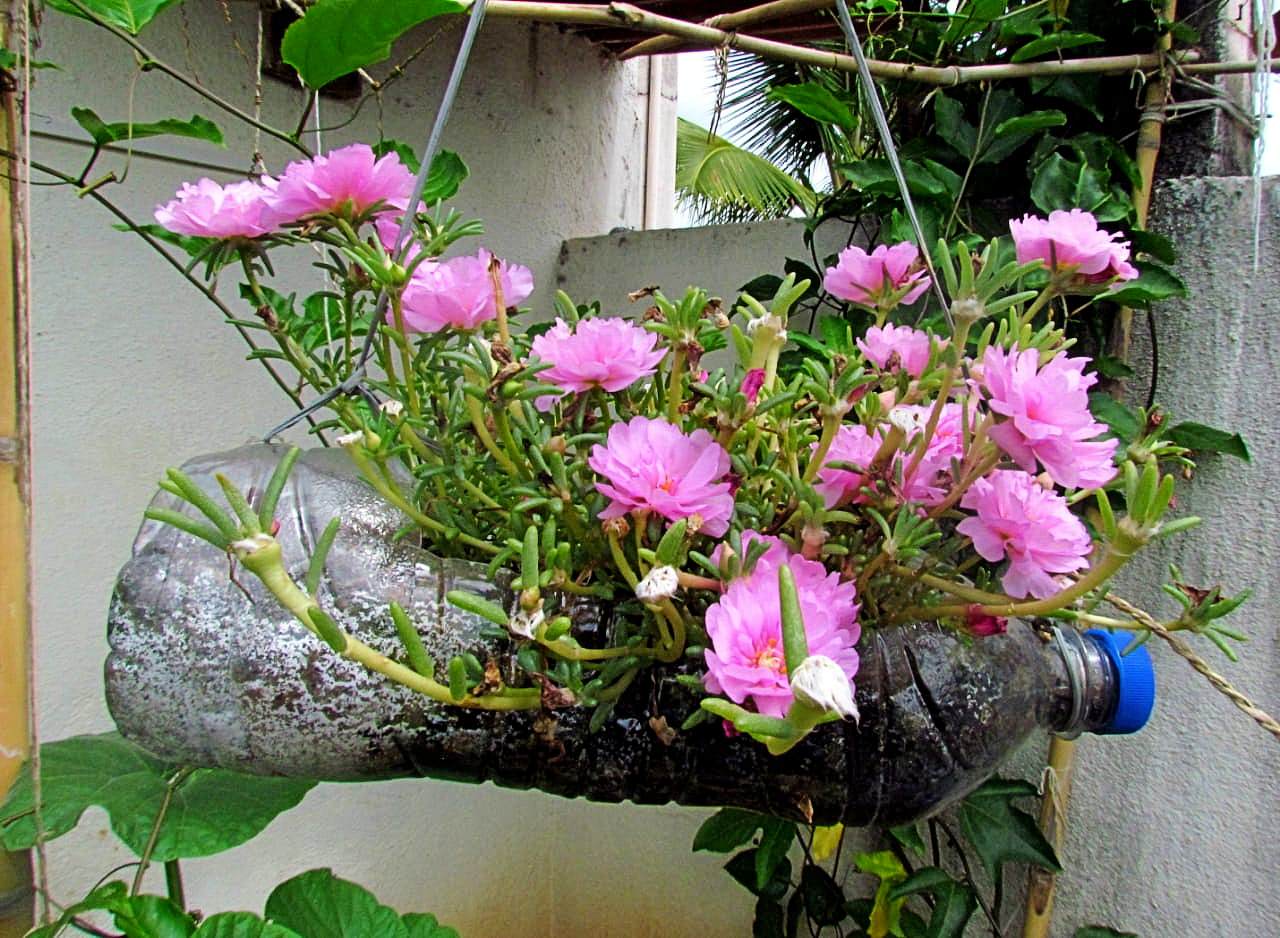
Today her garden has more than 100 containers where she grows a wide variety of fruits and vegetables. While vegetables such as potatoes, sweet potatoes, eggplants and capsicum are grown in bags and buckets. Carrots and spring onions are grown in bottles hanging around the terrace. Cabbage, cauliflower, and other leafy vegetables are in thermocol boxes or scrapped crates. Neela is also growing flowering plants such as periwinkle, and portulaca in hanging bottles.
“Each time I successfully grew one plant, It motivated me to experiment more, and expand the varieties I had. After one year of successfully harvesting from containers, I decided to expand my garden all over the terrace,” says Neela.
At the centre of the terrace, she created a 250 sq ft by 100 sq ft plant bed. This was done by raising a 3 ft four-sided wall using bricks cemented together. This was filled with compost and finally mulched with leaves.
On the plant bed, Neela cultivates different varieties of root vegetables and exotic fruits such as dragon fruit, passion fruit, and cherries. Recently, she also harvested sugarcanes.
“I planted a few pieces of the cane fruit into my plant bed, and within seven months, more than six to seven full-grown shoots were ready for harvest. Sugarcane needed more water compared to other plants but no special techniques or nutrients were required. To give myself a challenge, I also grew them in bags,” says Neela.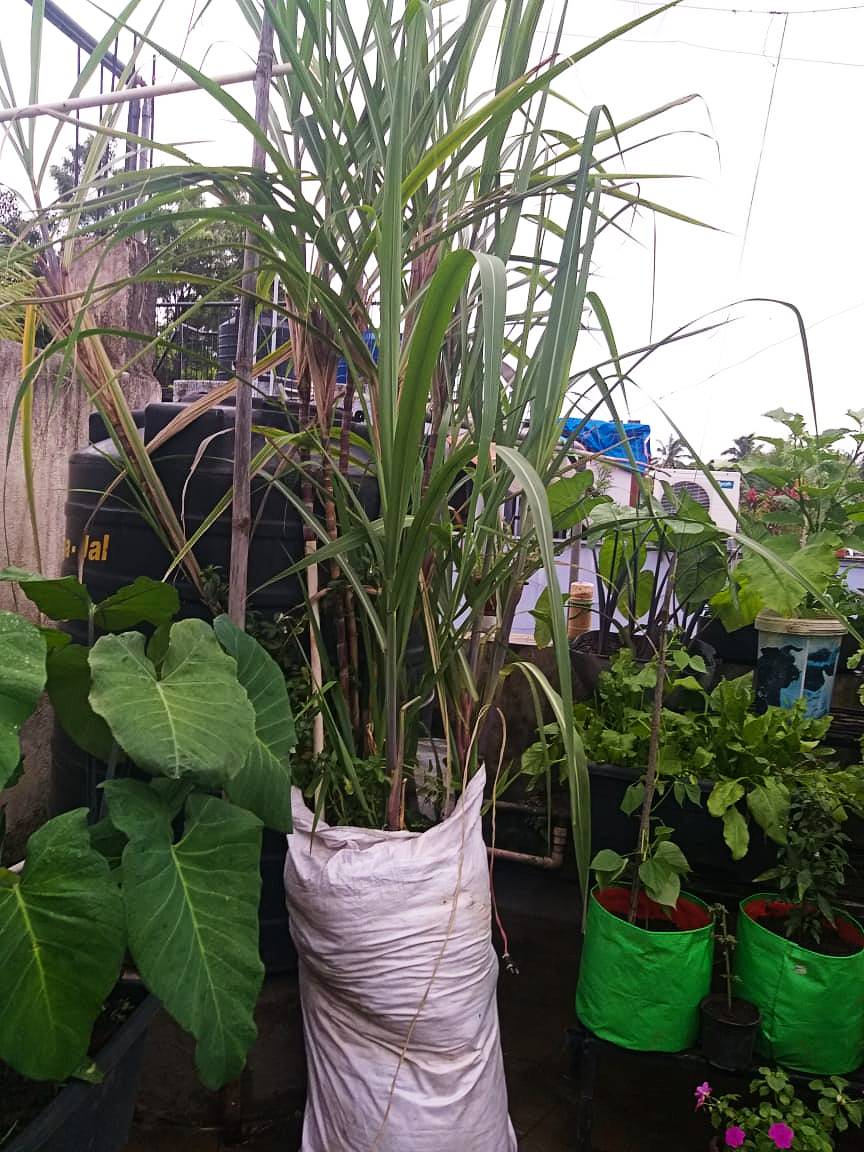
Earthworms are an integral part of Neela’s garden. They not only promote healthy growth for plants, but they also loosen the soil and make it more porous. To ensure the worms are healthy she ensures to feed them kitchen waste that is not too spicy or oily. Instead, they are fed with bits of fruits and vegetables.
For all her plants, Neela uses only one kind of organic fertiliser — ‘Jeevamrut’.
“This is a traditional Indian recipe that not only promotes the growth of plants but also earthworms. It is prepared by mixing different proportions of cow dung, urine, jaggery, and gram flour,” says Neela.
During her weekly harvest, Neela picks at least one kilo of each fruit and vegetable. Most weeks, she is left with more than what she requires and distributes the extra among neighbours, friends, and family members.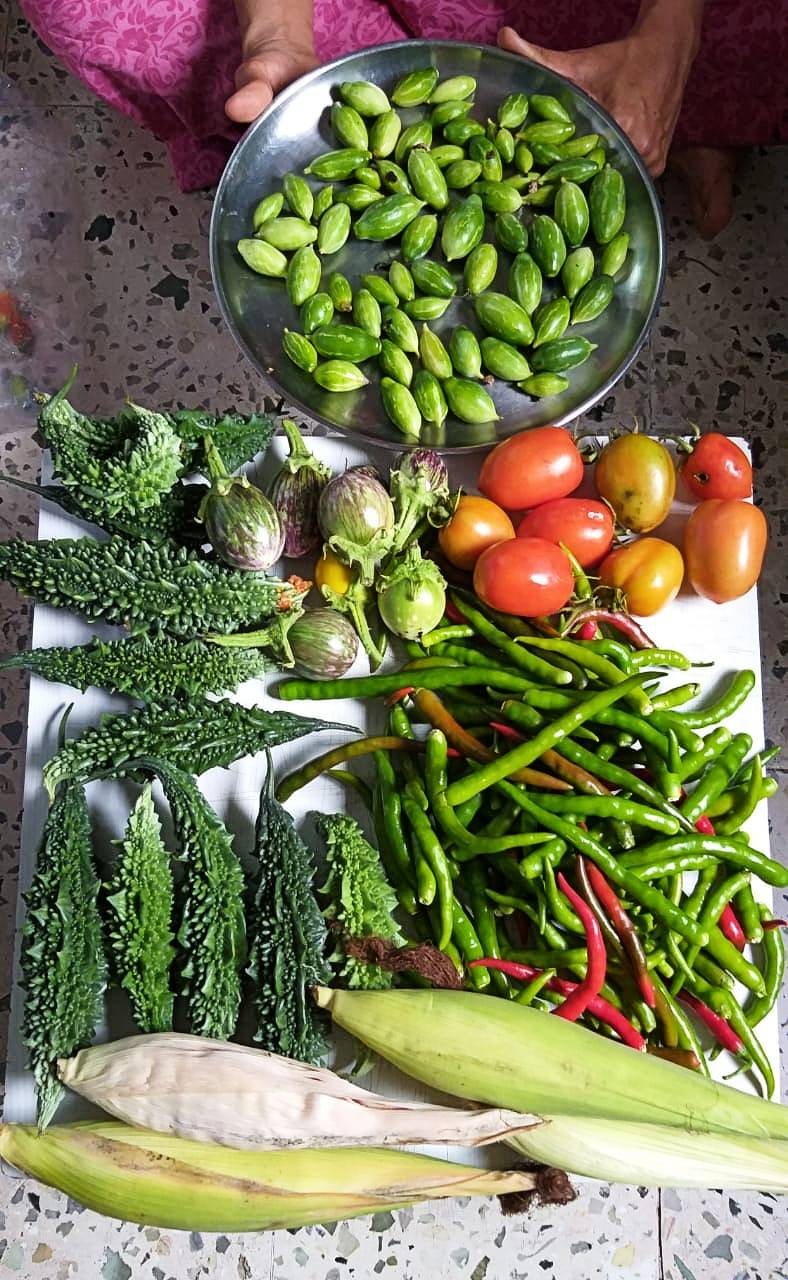
Organic Gardening Group
Three years ago, Neela and 40 other residents of the society, decided to start a Facebook group named Organic Gardening Group, to share tips and techniques about farming with each other.
“Today the community has 30,000 members. It comprises experienced gardeners, beginners who want to pursue organic farming, and individuals who are interested in organic farming,” says Neela.
After seeing a few pictures of Neela’s garden on Facebook, many budding gardeners requested to visit her garden to learn from her. This started to happen frequently, and now, every Sunday Neela conducts a 2-hour gardening workshop where she teaches participants how to prepare compost, fertiliser, and plant beds — all for free.
If you would like to attend a workshop, please click here.
Images courtesy: Neela Renavikar Panchpor.
(Edited by Gayatri Mishra)
Like this story? Or have something to share?
Write to us: [email protected]
Connect with us on Facebook and Twitter.
This story made me
- 97
- 121
- 89
- 167
Tell Us More
We bring stories straight from the heart of India, to inspire millions and create a wave of impact. Our positive movement is growing bigger everyday, and we would love for you to join it.
Please contribute whatever you can, every little penny helps our team in bringing you more stories that support dreams and spread hope.






